Brita water filters are available in almost every grocery and drug store nationwide, but do they really work? Let’s see whether the big name in home filtration is really worth its reputation.
Table of Contents
- How Do Brita’s Activated Carbon Water Filters Actually Work?
- How Well Do Brita Filters Work?
- We tested the Brita Elite Filter
- Will a Brita Filter Remove Alcohol?
- Can You Recycle a Brita Filter?
- Our Consensus: Use a Brita, But Keep Your Expectations Realistic
- Brita Water Filter Pitcher Elite Filter [Staff Tested]
- Improve taste of tap water
- Cut down on use of plastic bottles
- Only the more expensive Brita Elite filter offers meaningful water filtration for pollutants like lead, microbes, and radioactive compounds
Achieving pure, clean-tasting drinking water is a priority for many of us. It’s hard to know what’s lurking in our taps, which makes relying on portable water filtration systems appealing. Brita is a leading name in home water filters, with pitchers that claim to pull out everything problematic before you take a sip. While there are better water filters on the market than Brita, Brita filters are inexpensive and accessible for most families.
But do Brita pitchers fulfill their promises? Will your water be purer after running through their filters? And what about the viral TikTok trend that claims you can improve the taste of low-quality alcohol with a Brita pitcher?
See also: Can Brita water filters remove lead from drinking water?
Let’s see whether the big name in home filtration is really worth its reputation.
How Do Brita’s Activated Carbon Water Filters Actually Work?
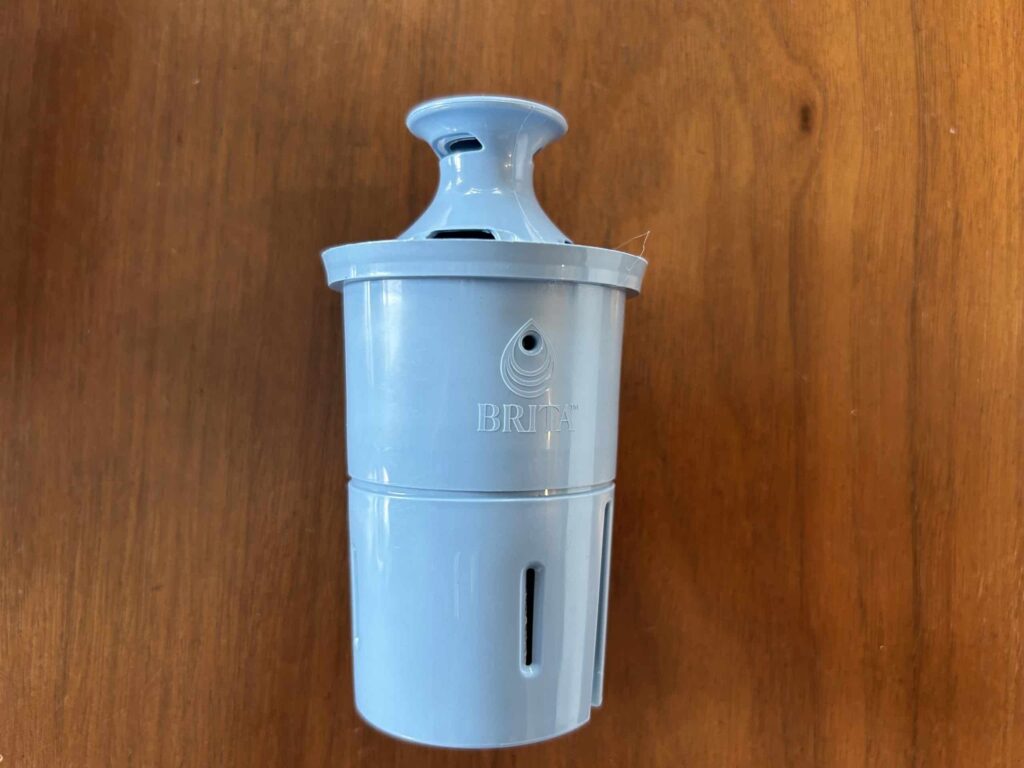
Not all tap water is created equal. Yours might taste different than a friend’s, depending on your water source, the quality of your pipes, and its natural mineral content. Brita filters neutralize these factors so that drinking water tastes consistent, regardless of the source.
Brita pitchers are designed for use with disposable filters. To use, you will pour water into a compartment at the top of the pitcher with a filter at the bottom. Each consists of a coconut-based activated carbon filter. Think of them as an ultra-fine sieve that catches and stores tiny particles.
Water will first flow through a built-in mesh screen that removes and prevents black flecks. The activated carbon granules will then act like a sponge that removes mercury and the taste and odor of chlorine. They also contain an ion-exchange resin that filters trace amounts of zinc, copper, and cadmium.
As the water runs through the filter, it slowly trickles out of the compartment into the main pitcher. Once the water stops dripping through the filter, it’s ready to be poured out and used.
How Well Do Brita Filters Work?
Brita claims its filtration system can remove up to 99% of many kinds of contaminants. Research seems to back this up, as a 2020 study found that carbon filters can bring lead contamination in tap water down to safe levels.
What’s important to keep in mind is that the range of contaminants these filters are equipped to tackle is rather limited. There are a large number of potentially toxic compounds that these filters won’t affect whatsoever.
Making things more complicated, Brita filters are only certified to remove a contaminant if they paid for testing from a third party to prove it can. This means the filters may remove at least some level of many contaminants they aren’t officially certified for.
We tested the Brita Elite Filter
We staff tested a Brita water pitcher filter that holds 6 cups of water. Right off the bat, we were impressed with the relatively minimalist packaging which does have a plastic wrap, but comes in a reusable cardboard base. The quality of our water in Jackson Hole is high in most parts of town (except for the Hobacks) but the water out of the tap did taste better after using the Brita filter. We found the taste with an Elite Brita filter better than our Pur filter.
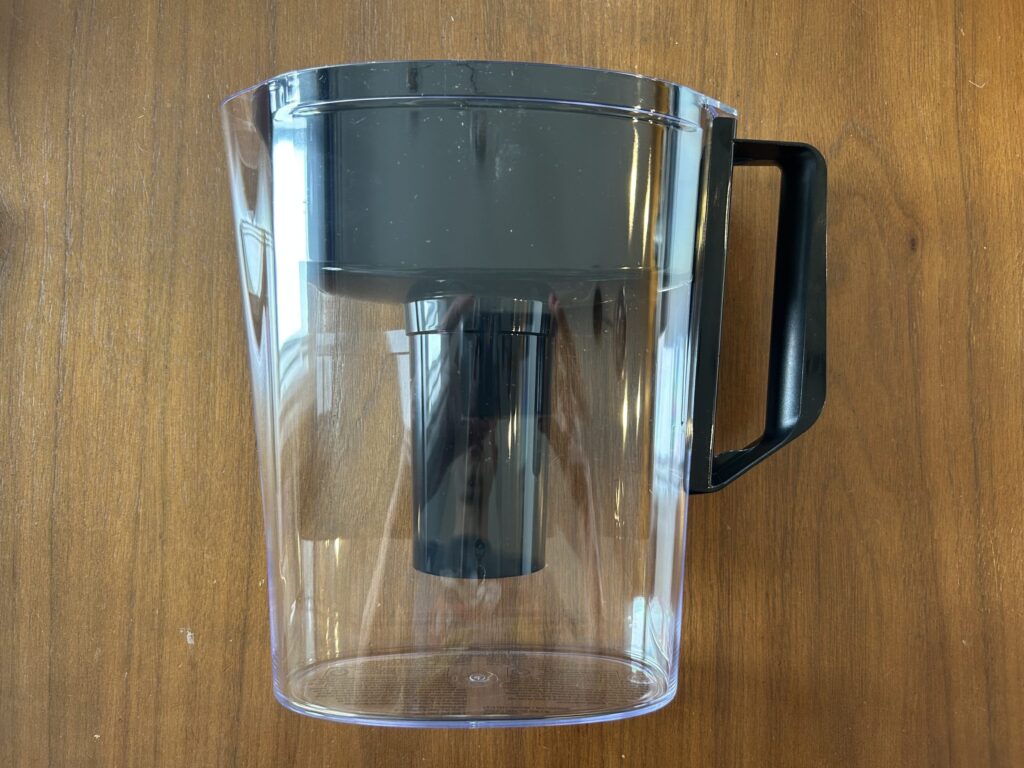
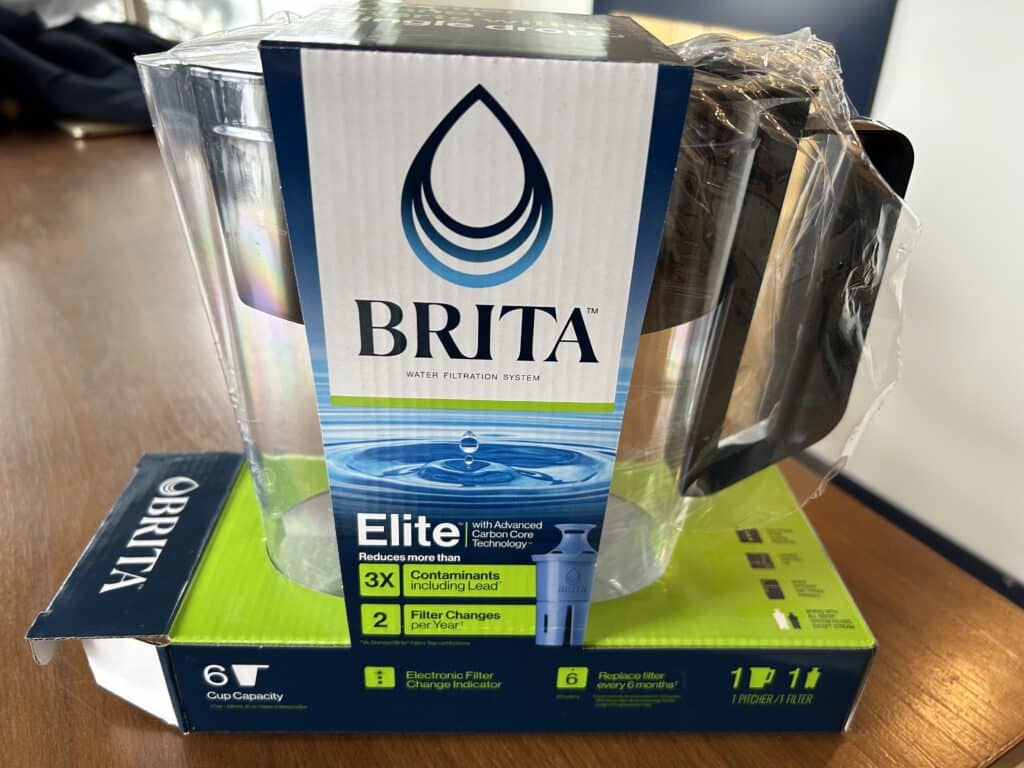
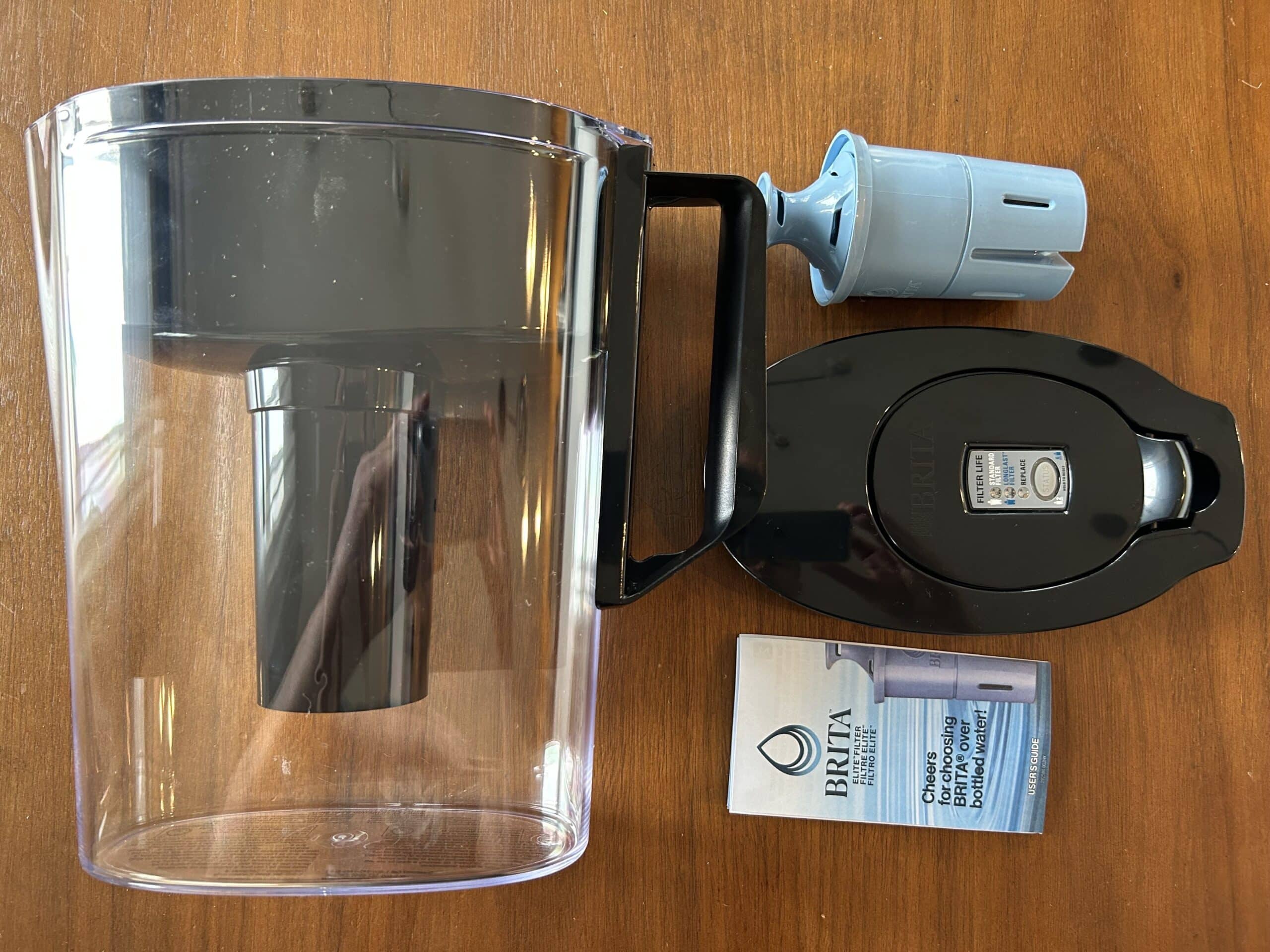
While it’s tempting to keep your Brita filters in use for as long as possible to save money, leaving them unchanged may actually leave you with worse water overall. Each filter is only capable of holding so much material, and they lose their effectiveness once they reach at point.
Once the filters are filled with trace minerals and bacteria, there’s nowhere else for them to go, and they might start filtering back into the pitcher. The filters can also act as a breeding space for bacteria that then contaminates the pitcher.
For this reason, it’s essential to follow the replacement instructions for your specific Brita filter style, which will usually have you changing out the filter every two or six months, depending on the style. Many pitchers make the process easy with a SmartLight indicator or built-in LCD screen that counts down from your last filter change so you know when you’re due for a new one.
BPA, or bisphenol A, is an industrial chemical that’s been used for plastic production over the past 70 years. It was once commonly used in food and drink containers, but research increasingly shows it has the potential to seep into them. There’s growing evidence that BPA exposure leads to numerous health problems, especially during fetal development. In the long term, it’s been linked to increased blood pressure, cardiovascular disease, and type 2 diabetes.
In light of this research, companies have been pulling BPA out of their products for decades to guarantee they are 100% BPA-free. Brita is no exception. The brand’s website makes it clear that all of its products, including pitchers, dispensers, filtering water bottles, replacement filters, and water filter faucet systems are made without BPA. However, as Leigh pointed out in a recent post, going BPA free is harder than you might think and the Brita pitcher could contain BPA alternatives.
While many customers purchase Brita pitchers as a solution for their hard water, the reality is that these pitchers aren’t designed to take on that task.
That’s because Brita filters are foremost filters, not softeners. They are only capable of removing temporary hardness like calcium bicarbonate, but can’t make much difference for permanent hardness, like calcium sulfate. Likewise, the minerals that contribute to hardness build up quickly in the filters, meaning that they may leak back into the water unless you change the filter even more than recommended.
Will a Brita Filter Remove Alcohol?
Spend time on TikTok these days, and you might stumble on a hack for improving the taste of cheap alcohol. Many an influencer has run low-grade vodka through a Brita and claimed the resulting liquid tasted identical to far more expensive brands. In other words, Brita filters will purportedly make cheap vodka taste like water.
Is there any merit to these claims? The popular science show Mythbusters actually took the challenge on almost 15 years ago. Its consensus? The effectiveness of this hack is overhyped.
In reality, a Brita filter can’t change the chemical composition of your drink. The activated carbon filter does work to remove some of the strong smell and taste in cheap alcohol, which is the result of cheaper fermenting agents and fewer distillations that top-shelf brands go through.
The best vodka is made from wheat or rye (compared to corn, sugar beets, or molasses) for cheaper brands) and undergoes multiple distillations to pull out any impurities. The result is a drink so smooth it almost goes down like, well, water.
However, filtering and distilling are very different processes. Filtering cheap vodka further won’t compensate for the lack of distillation and can only make so much difference in the overall flavor. Likewise, many other factors impact how much of a difference you’ll notice from filtering vodka, including the age of your filter.
Finally, the fermentation process is the most significant factor in vodka’s taste. Running yours through a Brita filter might make it marginally more palatable, but the odds are good that it will just result in a waste of a good filter. Don’t expect it to make cheap alcohol taste like top shelf, and definitely don’t assume it will have an impact on your hangover later.
Can You Recycle a Brita Filter?
Brita makes it easy to recycle old water filters through a partnership with TerraCycle. You’ll need to complete the form on Brita’s recycling page to receive a free shipping label. This lets you mail back used, completely dried filters back for recycling. Doing so enables you to earn Brita Reward Points, which can be used for redeeming discount offers.
Note: As of publication, Brita has shared on its website that it is “taking a few months off” from collecting used filters.
Our Consensus: Use a Brita, But Keep Your Expectations Realistic
Brita filters make a lot of promises about improving the taste and health of your drinking water. But realistically, these activated charcoal filters are certified to take out less than you’d expect. Unless you spring for the Elite filters, the pitcher won’t make much difference in the amount of lead, radioactive compounds, and microbes you drink.
Likewise, these pitchers only work if you’re willing to keep up on maintenance. Fail to switch out the filters on schedule, and you might be better off not using one at all.
However, Brita filters do succeed at making tap water taste better. They are free from harmful plastics like BPA and will likely save you money in the long run over purchasing filtered water. And, assuming the company starts accepting used filters for recycling again, they are lighter on the environment than disposable jugs. So long as you don’t expect these home water filters to perform miracles, they can be a great way to elevate your drinking water at home.
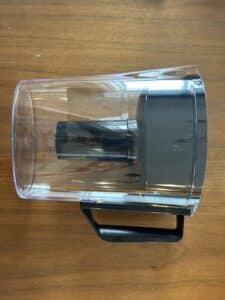
Brita Water Filter Pitcher Elite Filter [Staff Tested]
Highlight: Surprisingly eco-friendly packaging and certified to remove lead, microbes, and chlorine. Reduces the use of plastic bottles. BPA free.